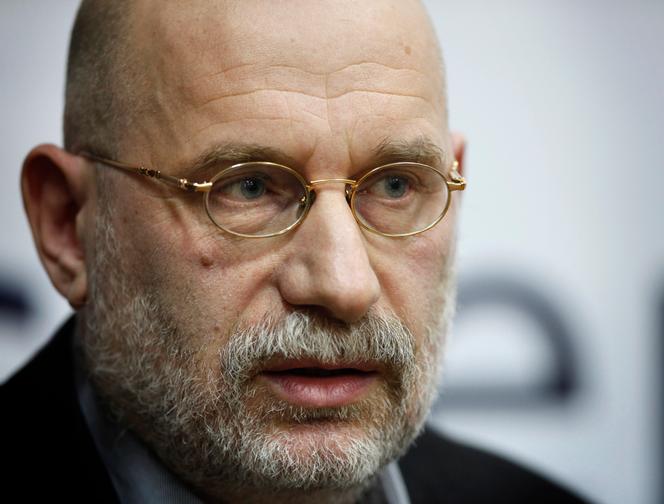


On Tuesday, December 19, before an audience of generals and senior civil servants (including the Orthodox Patriarch Kirill), Vladimir Putin praised Russian "society standing together" behind the Russian troops fighting in Ukraine. However, not everyone stands behind them, and the Kremlin boss once again acknowledgded the existence of a "fifth column" "with which we have constantly grappled" – thereby raising the threat of a further crackdown on dissent. Just like the first Russian writer to ever be labeled a "terrorist" by Moscow, the very day before the meeting.
Living in exile in London where he has been residing since 2014, Boris Akunin discovered his new status from a distance. On Monday, Rosfinmonitoring, the federal financial intelligence agency, placed him on the register of "terrorists and extremists," resulting in all his accounts being frozen. On Tuesday, police carried out a high-profile raid of the Zakharov publishing house, which distributes his works, and confiscated unsold copies. According to the pro-government online media Gazeta.ru, his publisher, Ast, and several bookshops had already announced on December 15 that they would be withdrawing all his books from sale, after an investigation into him for "defamation" of the Russian army had been opened.
Boris Akunin (whose real name is Grigory Chalvovitch Chkhartishvili), was born in Georgia in 1956 and moved to the Russian capital at the age of two. A historian of Japanese civilization and a graduate of the institute of Asian and African Countries at Moscow State University, he has penned numerous essays and historical crime novels, including The Adventures of Erast Fandorin, a series set in the Tsarist era, which has been adapted into plays and TV series. He has also written a History of Russia, a nine-volume compilation tracing the country's development up to the 1917 revolution.
From London where he exiled himself after leaving Russia in 2014 following the annexation of Crimea in 2014, he has repeatedly spoken out against the war in Ukraine. "Insanity has won," he posted on Facebook on the first day of the conflict, back in February 24, 2022. "Russia is ruled by a mentally deranged dictator and, worse still, it obeys his paranoia."
He then co-founded the "Nastoashchaya Rossia" ("the real Russia") project, supported by several members of the anti-war Russian intelligentsia in exile, to help Ukrainian refugees. However, never before had the writer been singled out for condemnation in this way, or even labeled a "foreign agent." His inclusion on the register of people accused of terrorism is a first. He refers on Facebook to a single precedent, that of Sergei Stepniak-Kravchinski (1851-1895), a revolutionary writer who killed the head of the Tsarist secret police.
You have 30% of this article left to read. The rest is for subscribers only.
